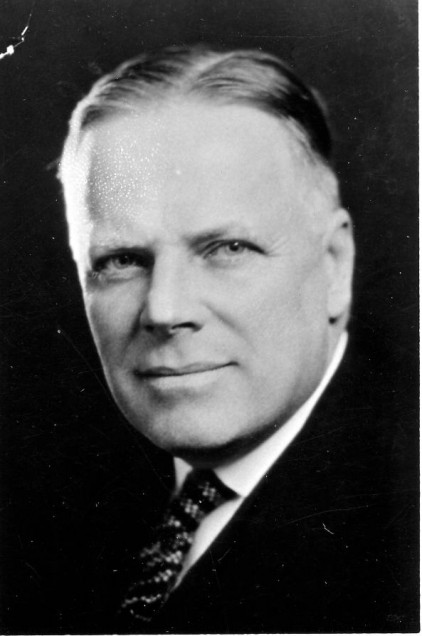Methodist Mission Educator

Edmund Davison Soper, Ohio Wesleyan University Historical Collection.
Soper was born in Tokyo, Japan, of American Methodist missionary parents. Following graduation from Dickinson College, Carlisle, Pennsylvania, and Drew Theological Seminary, Madison, New Jersey, he first expressed his lifelong interest in fundamental problems of the Christian world mission as field secretary of the Missionary Education Movement (1906-1910).
Beginning in 1910 as professor of missions and comparative religion at Ohio Wesleyan University, he was known as an engaging teacher. This continued in later years, at Drew Theological Seminary, Northwestern University, Duke University, and Garrett Biblical Institute; he also served visiting professorships in India, Singapore, and Manila. As the seventh president of Ohio Wesleyan University (1929-1937), he helped that Methodist institution emerge from the Great Depression with strength.
Soper’s greatest contribution to missiology was through his writings, honed by years of interpreting the Christian mission to undergraduate and theological students. He thoroughly revised The Religions of Mankind (1921) in 1938 and 1951 in light of contemporary scholarship. In his textbook The Philosophy of the Christian World Mission (1943), he defended the uniqueness of Christianity and its continuity with other religions as a middle ground between William Ernest Hocking and Hendrik Kraemer. In two works–Lausanne: The Will to Understand (1928) and Racism: A World Issue (1947)–he introduced to a wider audience the cutting edges of ecumenical thought.
By Norman E. Thomas.
This article is reprinted from Biographical Dictionary of Christian Missions, Macmillan Reference USA, copyright 1998 Gerald H. Anderson, by permission of Macmillan Reference USA, New York, NY. All rights reserved. It is taken, with permission, from the History of Missiology: http://www.bu.edu/missiology/missionary-biography/r-s/soper-edmund-davison-1876-1961/
Bibliography
Digital Texts
Soper, Edmund Davison. The Faiths of Mankind. College Voluntary Study Courses. Third Year–Part II. New York: Association Press, 1918.
The Religions of Mankind. New York, Cincinnati: The Abingdon Press, 1921.
Primary
Soper, Edmund Davison. The Study of Religion in the Training of Missionaries. Nashville, Tenn: Board of Missions, Methodist Episcopal Church South, Candidate Section, 1900.
The Missionary Institute: Essentials in preparation and conduct. New York: Young People’s Missionary Movement, 1906.
The Study of Missions. Ohio Wesleyan University Bulletin, v. 12, no. 6. Delaware, Ohio: Ohio Wesleyan University Bulletin, 1913.
Christian missions and the comparative study of religion. Drew Theological Seminary Bulletin; v. 2, no. 4. Madison, NJ: Drew Theological Seminary, 1914.
Christianity and the non-Christian religions. New York: Student Volunteer Movement for Foreign Missions, 1923.
What May I Believe?. The Abingdon Religious Education Texts; College Series. New York: Abingdon Press, 1927.
Lausanne: The will to understand; an American Interpretation. Garden City, NY: Doubleday, Doran, 1928.
Academic freedom in a Christian college: An address delivered by Edmund Davison Soper on the occasion of his inauguration as president of Ohio Wesleyan University. Delaware, Ohio, 1929.
The Philosophy of the Christian World Mission. New York; Nashville: Abingdon-Cokesbury Press, 1943.
What is God like? : An historical and comparative survey. Southwestern University, Georgetown, Texas. Slover Lectures, 1944.
Racism, a World Issue. New York: Abingdon-Cokesbury Press, 1947.
The Inevitable Choice: Vedanta Philosophy or Christian Gospel. New York: Abingdon Press, 1957.
The Biblical Background of the Christian World Mission. New York: Abingdon-Cokesbury Press, 1951.




